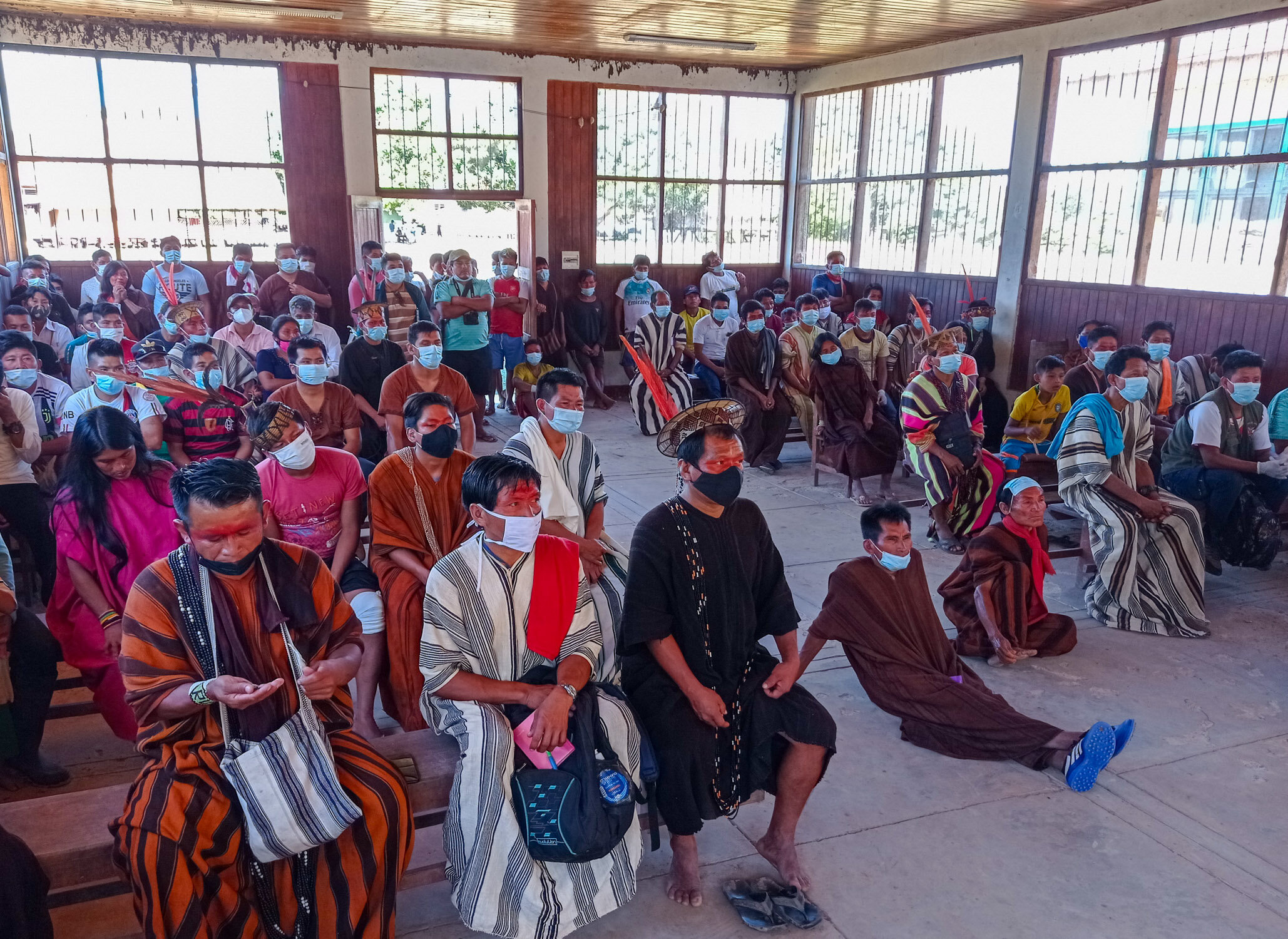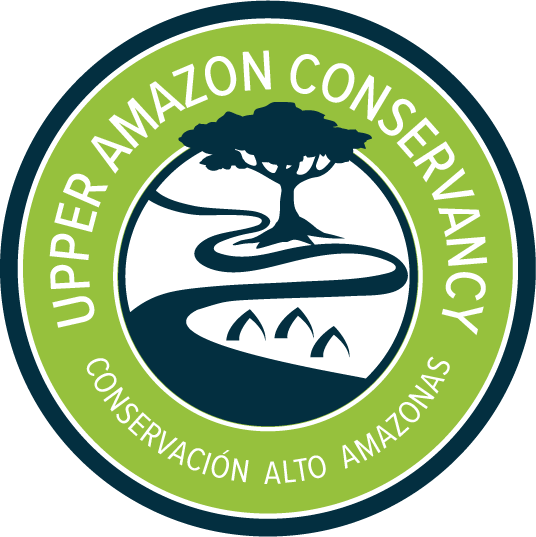Tribes Oppose Illegal Road During Indigenous Congress
On April 29th, representatives from the 16 communities of the remote Yurua region convened for a special congress to discuss an illegal road being constructed to connect the Yurua with the Ucayali River and the rest of Peru (see map). The road is being constructed by loggers and land traffickers from the logging town of Nueva Italia. This despite ignoring the necessary environmental impact studies or consultations with the Yurua communities who will be impacted.
After seeing satellite imagery of the construction and related deforestation, the Yurua’s indigenous federation, ACONADIYSH, organized a special, emergency congress with all 16 communities representing six ethnicities. Other organizers included UAC and the region’s two other indigenous conservation associations: the Communal Conservation Association of the Yurua – ACCY and the Environmental Association of the Dulce Gloria, AACAPPY. Participants included the community of Saweto from the adjacent Tamaya River, which will also be impacted by the road, and representatives from the Ucayali (regional) and Yurua (local) governments, the Association de Bilingual Teachers of Yurua, and Peru’s Ministry of Culture.
The Brazilian community of Apiwtxa, whose lands border the road’s planned route, were stopped at the border and not allowed to participate, supposedly due to COVID protocols. However, organizers had obtained formal permission from the Ministry of Health and the local police office, and there is the belief that pro-road advocates coordinated with authorities at the border to prevent Apiwtxa’s participation, fearing their reputation as defenders of indigenous rights and influence in organizing indigenous opposition to the road.



The congress was the first opportunity for local people to learn about the illegal construction rapidly advancing towards Yurua’a capital town of Puerto Breu and their community lands. UAC provided maps and images of the newly cleared road as well as the widespread deforestation from newly arrived settlers from Peru’s central jungle region, particularly the valley of Apurimac, Ene and Mantaro rivers (VRAEM), Peru’s major coca producing region. New coca farms and airstrips indicate that the road is already being used for coca farming and trafficking.
The large majority of participants expressed their concerns and opposition:
“While we do not have the road we are not being impacted yet. First we need to prepare ourselves, our youth, our women, improve their knowledge.” Mr. Alfonso Rengifo, president of ACONADIYSH.
“The State should implement consultation processes in the communities about such projects.” Mr. Feliciano Mañaningo, leader of Dulce Gloria.
“ We do not want a highway, maybe in the future, but now we are not prepared.” Ms. Maria Elena Paredes, leader of Sawawo Hito 40.
“When the road arrives they will log during the night and we won´t be there to control. The police will not take care, they will be paid and the others will do what they please .” Mr. lván Piñango Angulo of Sawawo Hito 40.
“We do not want the highway, we want an airport.” Mr. Alfredo Tello Canales of San Pablo.
“The laws favor us, as indigenous peoples we must be consulted, every project needs to have its proceedings and provisions.” Mr. Arlindo Ruiz Santos, president of AACAPPY.
However, a small minority voiced their support for the road:
“We as indigenous people do not have ways to take out our products. If the road arrives, Yurua will grow, there will be new schools, we will not depend from the mestizos, people will come to buy our products.” Mr. Elvis Mamani, Koshireni community.
“The road brings progress for the future of your children, the aim is that Yurua can be a tourist destination, to receive visitors, to have better houses of brick and cement. The road project will bring benefits, nobody will take away your land, that is a lie, everything depends on you, as indigenous people you have several rights.” Mr. Abner lturrarán Bustos, representative of the Yurua government.



At the conclusion of the congress, the indigenous participants signed a formal document (aka “acta”) summarizing the main outcomes to share with authorities. The main conclusions of the event were:
1. There needs to be a process for the road. In this case, there hasn’t been a formal project or announcement. It is an illegal road, and in addition we have not been consulted.
2. The first Congress of the Indigenous People of Yurua opposes the road, because we are not aware of its advantages and disadvantages, nor of what can come in the future.
The full Acta is available here.
